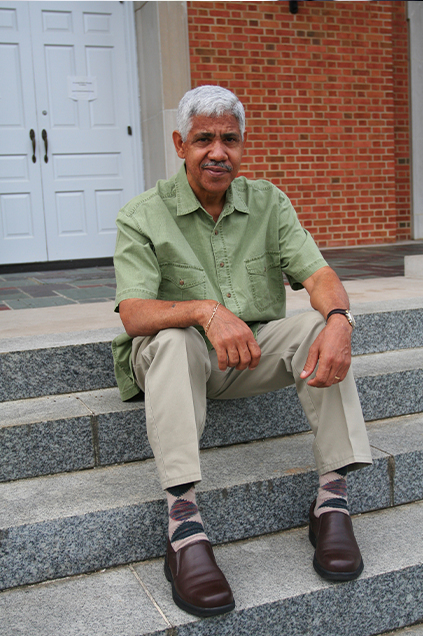
NO RECOVERY NO FEE Free Case Review
New Orleans Delayed Treatment of Stroke Lawyers
Experienced Louisiana lawyers when delays in stroke treatment cause harm or death
Strokes are a leading cause of permanent disability and death. While many victims are elderly, anyone of any age can have a stroke. Medical professionals must administer the proper care and medications quickly; failure to do so can cause long-term, permanent damage.
Many stroke victims can lead normal lives thanks to life-saving medications and treatments - if they are treated within hours of their symptoms. At Garcia & Coman, our Louisiana delayed stroke lawyers work with medical experts, financial planners, life care planners, and others to show that treatment was delayed, and that the delay caused harm, disabilities, or death. Contact us if delays in stroke treatment altered or ended the life of a senior you know.
About 16 percent of deaths due to heart diseases are caused by strokes according to the US Centers for Disease Control and Prevention (CDC). Nearly 800,000 people die of stroke each year.
NO RECOVERY NO FEE Free Case Review
How can we help?

What is a stroke?
Johns Hopkins University defines an ischemic stroke, the most common type of stroke, as occurring, “when a blood vessel that supplies the brain becomes blocked or ‘clogged’ and impairs blood flow to part of the brain. The brain cells and tissues begin to die within minutes from lack of oxygen and nutrients.”
Ischemic strokes are divided into thrombotic strokes (a blood clot develops in the blood vessels of the brain) and embolic strokes (a blood clot or plaque debris occurs outside the brain and then travels to one of the blood vessels in the brain).
Hemorrhagic strokes occur when a blood vessel that supplies the brain bleeds or ruptures. The causes include bleeding from blood vessels inside the brain and bleeding “in the subarachnoid space - the area between the brain and the membranes that cover the brain.”
Prompt treatment of both types of strokes is essential to minimize the amount of brain damage, prevent complications including cognitive impairment and loss of mobility, and prevent fatalities. Fortunately, there are medications and treatments that can stop the damage in its tracks, especially for ischemic strokes – but only if the treatment is immediate.
What are the indications someone is having or just had a stroke?
Stroke symptoms, according to the Mayo Clinic include:
- Communication difficulties, including problems speaking and problems understanding speech. A senior’s speech may be confused and he/she may be confused.
- Paralysis or numbness of the face or a limb. Paralysis or numbness usually just affects one side of the body. One side of the mouth of a senior stroke victim may droop.
- Vision difficulties. Either eye or both eyes may become blurry or blackened. Another possible symptom is double vision.
- Mobility problems. Possible symptoms include lack of balance and dizziness.
Anyone 55 or older has a higher risk of stroke.
Complications from strokes
Stroke complications include loss of muscle movement, paralysis, swallowing and tasting disorders, communication challenges, loss of memory, physical pain or tingling in a limb, anxiety, depression, and other physical and emotional complications. Most seniors in New Orleans who suffer a stroke that is not treated properly need a lifetime of medical care.

What is tPA?
Doctors, emergency health providers, nursing homes, and other health care providers need to know the signs and symptoms of a stroke so the senior can be treated where he/she is or transported by ambulance or emergency medical transport services.
The medical teams can administer a medication called atissue plasminogen activator, or tPA, which helps to break down or shrink the size of the blood clot so blood can flow to the brain again. tPA must be given within 3 hours from the onset of symptoms.
The treatments for ischemic strokes may include directly administering the tPA directly to the blood vessels in the brain through a catheter and removing the clot with a stent remover (often in conjunction with the injected tPA).
tPA is the “first treatment for acute ischemic stroke to receive Food and Drug Administration (FDA) approval,” and if administered quickly, it can reduce the risk of long-term damage. Garcia & Coman can help if your loved one had a stroke and:
- Was denied access to tPA
- Was not given tPA during the allotted time frame
- Was not diagnosed with stroke, and therefore was denied tPA
Why do delays in stroke treatment happen in New Orleans?
Hospitals, physicians, nursing homes, and at-home healthcare providers need to know and respond to stroke symptoms immediately. Delays can prevent life-saving drugs and surgeries. Research presented at the American Stroke Association’s International Stroke Conference in 2021 found that “for every 10 minutes of delay between arrival at the emergency room (ER) and starting stroke treatment, patients with severe strokes may lose eight weeks of healthy life.”
Our New Orleans delayed stroke treatment lawyers are skilled at showing that critical healthcare was delayed due to:
- A lack of understaffing of stroke symptoms
- Failure to contact physicians who can help immediately
- Failure to transport the senior to the closest ER by ambulance or other transport services that can provide life-saving medical care
- Understaffing
- Faulty triage in an emergency room of a hospital
- Diagnostic delays and errors
- Surgical errors
- Other medical mistakes
How can your Louisiana stroke negligence lawyers help?
At Garcia & Coman, our New Orleans stroke negligence lawyers advocate for you. Part of our fight is to hold the responsible caretakers and businesses accountable for delays in stroke treatment. The responsible parties may include:
- Hospitals and physicians
- Nursing homes
- Private caretakers
We work to show that delay occurred and that the delay caused your loved one’s condition to worsen, or that the delay led to the wrongful death of the patient. We also work to show the long-term medical care the senior will need due to the damage caused by the delay.
Most survivors of strokes require surgery, follow-up care with cardiologists and other doctors to determine the cause of the stroke; and extensive rehabilitative care with physical therapists, occupational therapists, speech therapists, and many other types of health care providers. Stroke survivors often need to meet with psychologists too.
Do you have a delayed stroke treatment attorney near me?
Garcia & Coman is located at 400 Poydras Street, Suite 2045, in New Orleans. We represent folks who developed disabilities due to the delayed treatment of stroke and the families of those who died due to the delayed medical care. We’ve helped people across the country. We’re ready to help you.
Get the help you deserve if stroke treatment in Louisiana is delayed
The good news is that drugs such as tPA can help save lives and prevent disabilities – if the drug is administered promptly. The bad news is that stroke treatment is often delayed due to the negligence of hospitals, nursing homes, and private caretakers.
At Garcia & Coman, we have the experience and resources to help compensate seniors and families for their harm and losses. To assert your rights, call or contact our offices today to schedule a free, confidential consultation. We have additional offices in Louisville, Los Angeles, Long Beach, and Phoenix. There are no upfront costs. We don’t get paid unless you get paid.
Se habla español.

